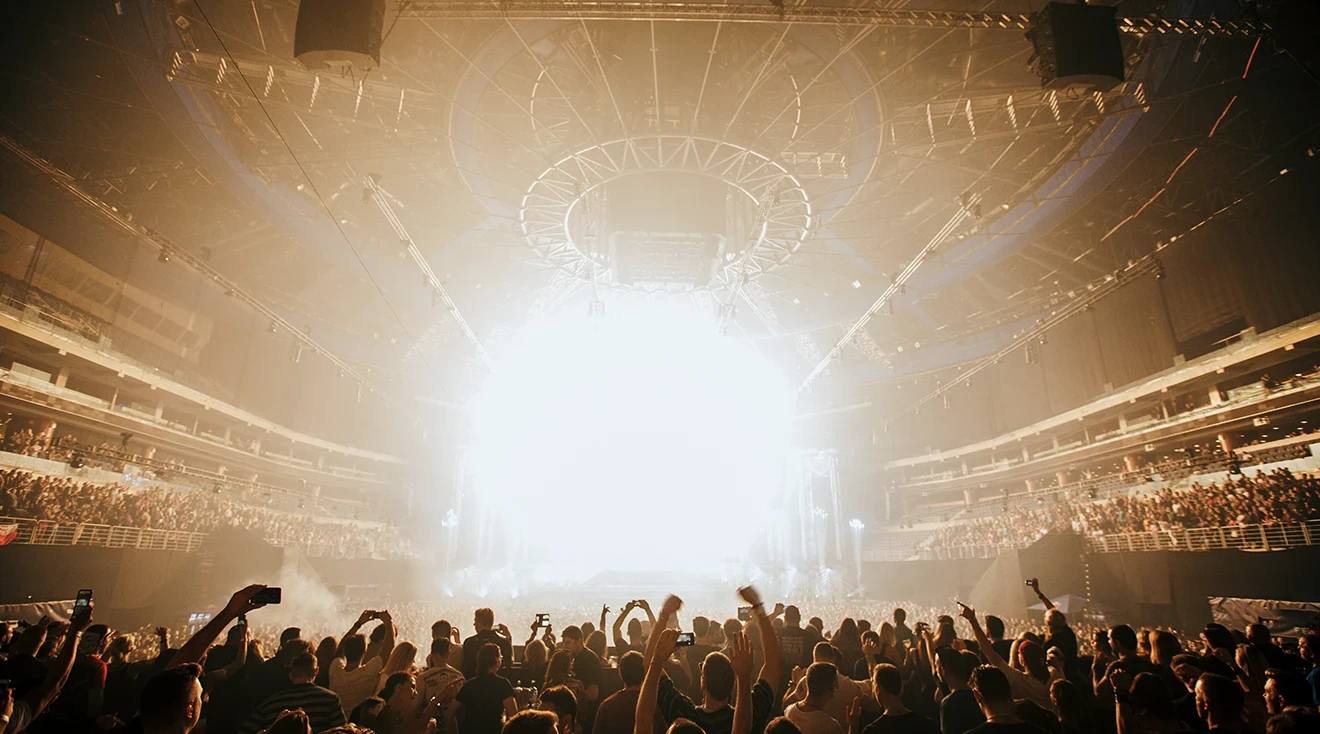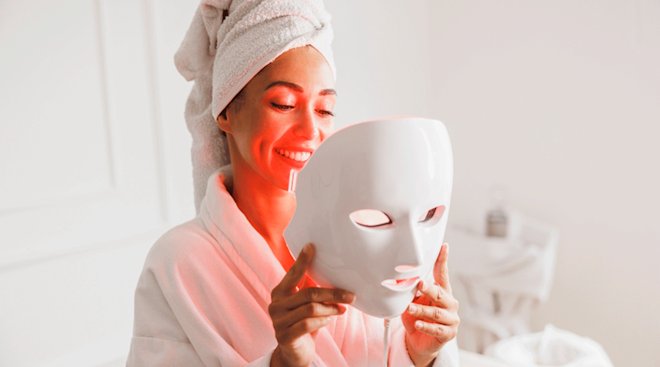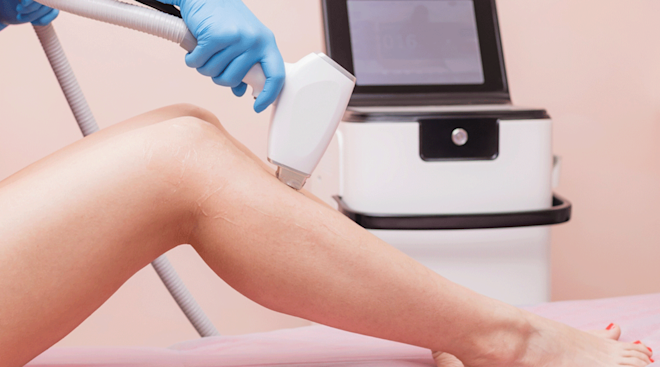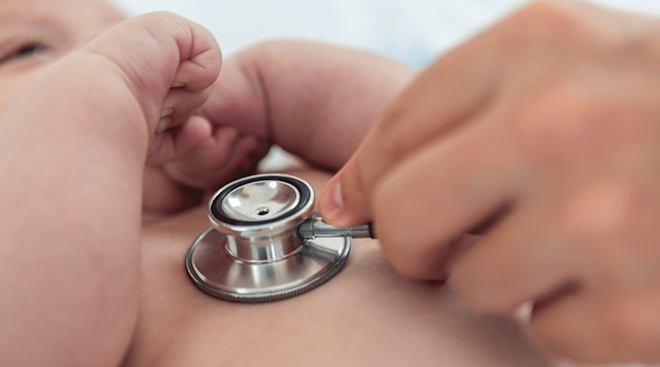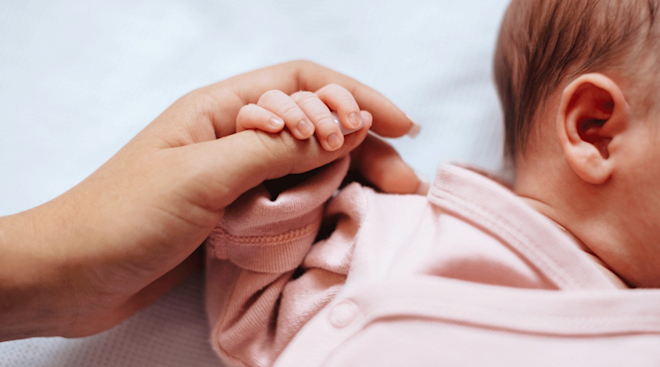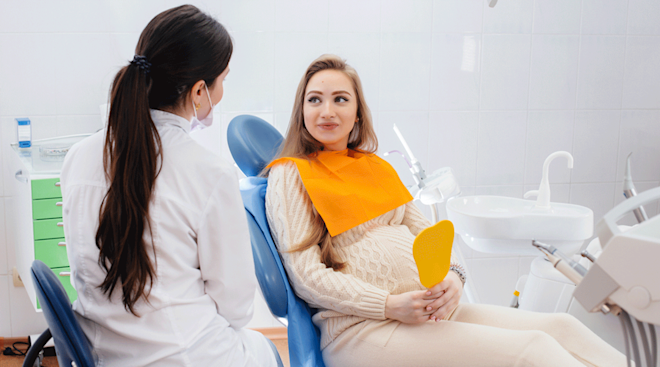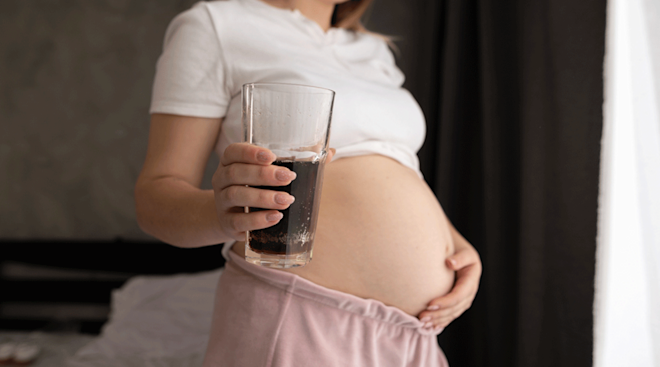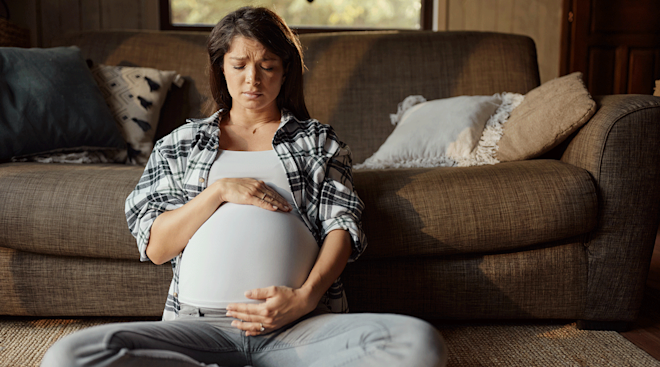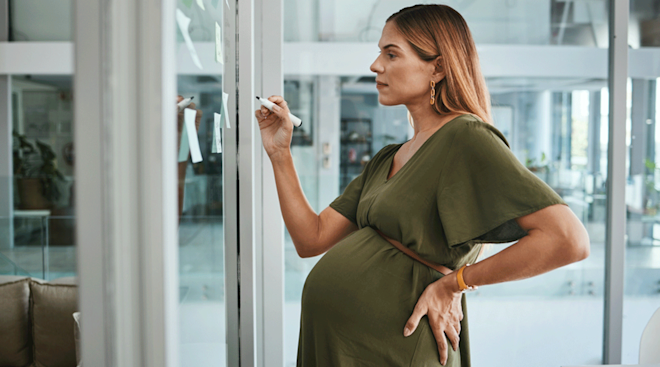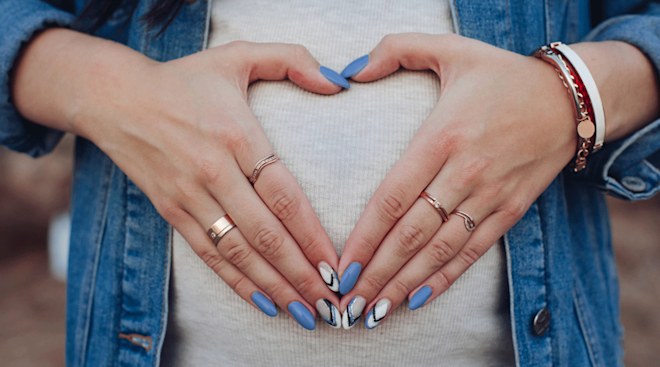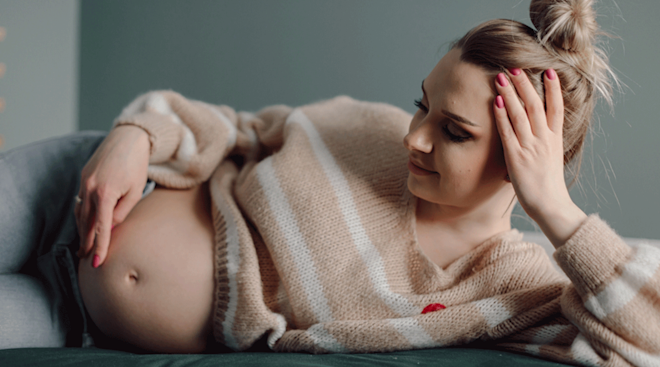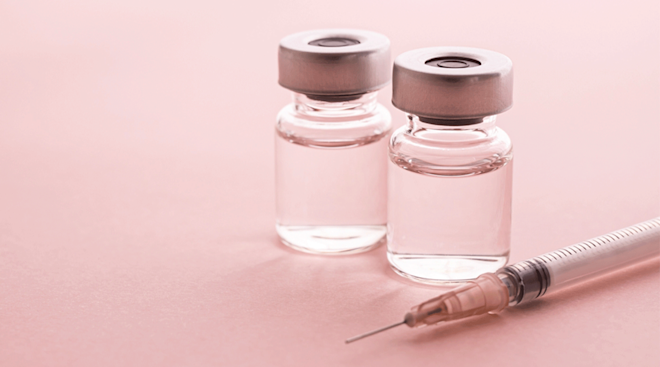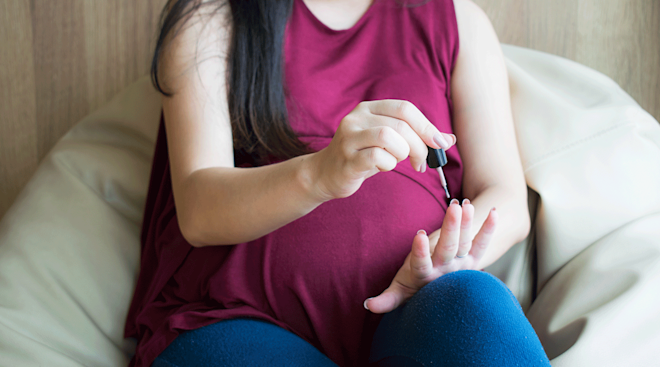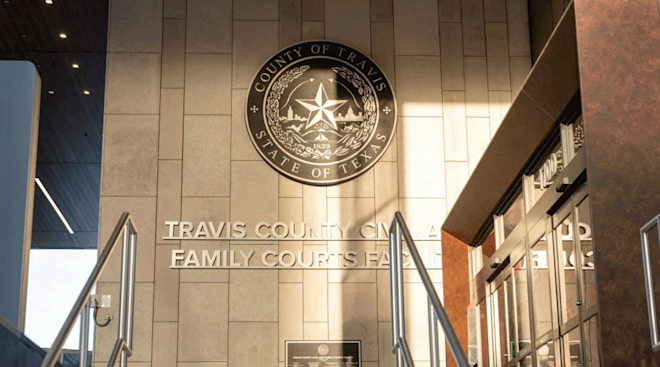Is Loud Noise During Pregnancy Safe for Baby’s Hearing?
Over the years, numerous studies have found that babies are able to hear, respond to and remember sounds from their time in the womb. No doubt, you’re excited to sing to, chat with and play your favorite music for baby, but you might also find yourself wondering how exactly—and how much—baby hears in utero. Do they hear sound levels and noise the way we do on the outside? And are loud noises safe for baby in utero?
Of course there are different degrees of what constitutes “loud.” So can you go to a concert pregnant—or is it detrimental to baby’s hearing? Are fireworks okay? And what about sirens and fire alarm noise during pregnancy? After all, while exposure to some loud noises is voluntary, other times, it may be largely out of your control—like hearing frequent alarms if you’re a first responder or working near heavy machinery at your workplace. Ready to get the lowdown? Keep reading to find out how hearing develops in utero, as well as what to know about exposure to loud noise during pregnancy and its potential impact on baby’s hearing.
Before we can get into whether loud noises are harmful during pregnancy, it’s important to know how baby’s hearing develops. According to Rebekah Mustaleski, CPM, a certified professional midwife and compression director at Motif Medical, baby’s auditory system begins developing as early as 5 weeks gestation—but, at this point, it’s really only the physical parts (like the ears) forming. Babies don’t start to pick up noise outside the womb until around 18 to 20 weeks—and it’s not until around 24 weeks that they start to notice the differences between those sounds, says Aimee Eyvazzadeh, MD, ob-gyn and medical director for Proov. (And, FYI, baby will start to distinguish Mom’s voice from the crowd closer to the third trimester.)
While babies can start to hear in utero during the second trimester, sounds are at a much lower pitch, says Mustaleski, adding that some noise is filtered out by the uterine wall and amniotic fluid. Plus, babies have other background noise in the womb, like Mom’s heartbeat and digestive system. What’s more, while full-term babies may be able to hear well at birth, it can take up to six months for their auditory systems to fully develop, notes Eyvazzadeh.
According to Mustaleski, a loud noise is anything that would require you to raise your voice to be heard by someone standing right next to you. This is measured at 85 decibels (the unit of measurement for sound) or more, according to the Centers for Disease Control and Prevention (CDC). For reference, a normal conversation is typically measured at 60 decibels.
So are loud noises during pregnancy safe for baby? Unfortunately, the answer isn’t entirely clear. “A lot isn’t known about exactly what can or will damage a growing baby’s hearing,” says Mustaleski. Eyvazzadeh adds that since baby doesn’t start hearing anything until around 18 weeks gestation, loud noises before that point (during the first trimester) may not damage fetal hearing. However, to be safe, it’s best to stay away from loud noises whenever possible throughout your pregnancy. “The sounds will travel through your body and reach baby, and if it’s an ongoing or repeating loud sound, it could damage baby’s hearing,” says Mustaleski. Plus, according to the CDC, exposure to loud noise (85 decibels or more) during pregnancy can cause stress in your body, which may negatively affect baby’s development.
It’s important to note that, while more research is needed, how the frequency of loud noise exposure may play a role in potential damage to baby’s hearing. According to research, babies of women who are consistently exposed to noise levels above 85 decibels during pregnancy are at an increased risk of being born at a low birth weight and having hearing dysfunction.
For the record, once baby is on the scene, you should continue to keep them away from loud noises, advises Eyvazzadeh. Infants, toddlers and young kids have “very sensitive ears that can be easily damaged,” she says. If the scenario is unavoidable, use earmuffs or headphones to protect their ears.
Loud noises are all around us, and you may not always know what decibel you’re hearing them at. Occasionally attending loud events, fireworks shows or concerts while pregnant is probably okay, depending on how far along you are and how close you are to the source of the sound. That said, it’s always best to check in with your ob-gyn. On the other hand, if you’re regularly exposed to loud noise at work (think jack hammers, machines, guns, loud music, trucks, airplanes, sirens, etc.), navigating the situation can be a little trickier. According to the CDC, most workplace noise is below 95 decibels, and there are some steps you can to protect yourself and baby:
- Avoid sounds with low frequency (these are noises that feel like a vibration through your body)
- Don’t lean on speakers or get too close to any other source of noise or vibration
- Steer clear of scenarios with startling and sudden loud noises
- Wear hearing protection—while it won’t protect baby, it may help decrease your body’s stress response to loud noises
- Discuss any potential occupational risks with your ob-gyn
- Ask your supervisor what the noise level is at work and inquire about modifications that can be made to your role during pregnancy
The bottom line? Hearing loud noises while pregnant can sometimes be outside of your control. Take comfort knowing that periodic exposure probably won’t harm baby’s hearing, but it’s always best to flag any questions or concerns with your doctor.
Please note: The Bump and the materials and information it contains are not intended to, and do not constitute, medical or other health advice or diagnosis and should not be used as such. You should always consult with a qualified physician or health professional about your specific circumstances.
Plus, more from The Bump:
Rebekah Mustaleski, CPM-TN, IBCLC, is a certified professional midwife specializing in evidence-based maternity care. She co-founded Roots & Wings Midwifery in Knoxville, Tennessee. Mustaleski received her bachelor’s degree in psychology from Centre College, and worked as a doula and birth photographer prior to establishing Roots & Wings.
Aimee Eyvazzadeh, MD, is an ob-gyn and fertility expert with over 20 years of experience. She also currently serves as the medical director for Proov. She earned her medical degree from UCLA School of Medicine and completed her ob-gyn residency at Harvard Medical School. She also completed her fellowship in reproductive endocrinology and infertility, as well as earned her masters degree in public health, from the University of Michigan.
American Association for the Advancement of Science, Babies Learn to Recognize Words in the Womb, Ausgust 2013
Centers for Disease Control and Prevention, Noise – Reproductive Health, May 2023
Centers for Disease Control and Prevention, What Noises Cause Hearing Loss?, November 2022
Science of The Total Environment, Full-time exposure to occupational noise during pregnancy was associated with reduced birth weight in a nationwide cohort study of Swedish women, February 2019
Centers for Disease Control and Prevention, Noise – Reproductive Health, May 2023
Learn how we ensure the accuracy of our content through our editorial and medical review process.
Navigate forward to interact with the calendar and select a date. Press the question mark key to get the keyboard shortcuts for changing dates.

































